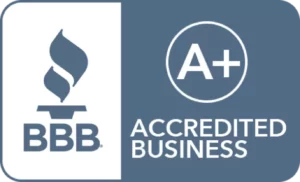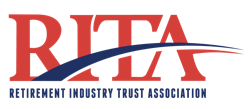Self-Directed IRA Types
What is a Self-Directed IRA
A Self-Directed IRA is not a term you will find anywhere in the Internal Revenue Code (IRC). In other words, the IRS does not define what a self-directed IRA is.
A Self-Directed IRA refers to an IRA account that permits you to invest in traditional assets, such as stocks, but also alternative assets, such as real estate or even cryptocurrencies.
Self-Directed IRAs provide essential benefits, like flexibility and tax advantages. In the last several years, the number of self-directed IRA accounts has grown significantly. Today, there are approximately 50 million IRAs totaling about $9.3 trillion.
With your Self-Directed individual retirement account, you decide when to buy, and sell and what investments you wish to make. As a result, you better diversify your retirement portfolio and gain the ability to invest in asset classes you feel confident about.
Why Choose a Self-Directed IRA?
This type of IRA allows investors to use their IRA funds to make diverse investments. Many IRA investors believe they can only use an IRA for traditional investments, such as bank CDs, the stock market, or mutual funds. Fewer investors know that the IRS permits investments like real estate to be held inside individual retirement accounts.
The two main advantages of using a Self-Directed IRA to make investments are that you can invest in what you know, and all the income and gains are tax-deferred or tax-free in the case of a Self-Directed Roth IRA.
Types of Self-Directed IRA Accounts
You can establish a Self-Directed IRA with:
- Pretax (Traditional) IRA
- Roth IRA
- SEP IRA
- Simple IRA
A Self-Directed IRA is essentially a vehicle that allows you to use your IRA funds to make investments banks or traditional financial institutions do not provide.
What Are Self-Directed IRAs?
There are essentially two different types of Self-Directed IRAs that we will focus on:
1. Custodian Controlled Self-Directed IRA
First, you have the custodian-controlled Self-Directed IRA. This type of IRA gives investors more options than self-directed IRA services a financial institution offers.
A special IRA custodian will serve as the custodian of the individual retirement account. Most IRA custodians make money by opening and maintaining IRA accounts. They do not offer financial investment products or platforms.
With a custodian-controlled Self-Directed IRA, IRA funds are typically held with the IRA custodian. The custodian will then invest the funds into traditional or alternative assets at your direction.
This Self-Directed IRA structure is popular with retirement investors who don’t plan to invest in an alternative asset that involves a high frequency of transactions, such as private fund investments.
2. “Checkbook Control” Self-Directed IRA
The second type of Self-Directed IRA offers checkbook control. Also known as the Self-Directed LLC, a special purpose limited liability company (LLC) is established, which the IRA owns and the IRA holder (you) manages.
Because you are the manager of the limited liability company, you have the authority to make investment decisions on behalf of your IRA. In other words, you don’t need the consent of a custodian to make a transaction.
With a Self-Directed IRA LLC with “Checkbook Control,” all your IRA funds will be held at a local bank in the name of the IRA LLC. Therefore, if you want to make any kind of transaction, you simply write a check straight from the IRA LLC bank account. You can also wire the funds from the IRA LLC bank account. This means you no longer deal with custodian delays and hefty transaction fees.
Self-Directed IRA Services
There are two important Self-Directed IRA services that every retirement investor must be aware of:
- Choosing the right IRA custodian
- Navigating the IRS-prohibited transaction rules
1. Choosing the Right Self-Directed IRA Custodian
A Self-Directed IRA custodian (passive custodian) allows you to engage in non-traditional investments but generally does not offer investment advice or serve as a fiduciary.
Not all Self-Directed IRA custodians are the same. For one, not all allow for checkbook control. Also, Self-Directed IRA custodians have different fee schedules. Some, such as IRA Financial Trust, charge a flat annual fee with no asset valuation fees. However, others charge a fee based on the value of the IRA.
Additionally, one of the more important Self-Directed IRA services is the efficiency with which the IRA custodian can open and fund the account. This is by way of a transfer or rollover.
2. IRS Prohibited Transaction Rules
The Internal Revenue Code (IRC) acts as a guide to prevent IRA holders from triggering prohibited transactions. However, the IRC does not describe what investments a self-directed IRA can make. It does, however, describe what the IRA cannot invest in.
If the self-directed IRA does not purchase life insurance, or collectibles, or engage in a prohibited transaction outlined in Code Section 4975, then you can invest.
When it comes to navigating the prohibited transaction rules, it is important to work with an IRA custodian who can help you understand whether the transaction you want to make will be a violation of the rules.
The good news is, that establishing a Self-Directed IRA is now easier than ever. The key is choosing the right self-directed IRA custodian who can perform all the required self-directed IRA services efficiently and cost-effectively.
Get in Touch
Do you still have questions about which type of Self-Directed IRA or services to choose? Get in touch with IRA Financial at 800-472-1043. You can also fill out the form to speak with an IRA specialist who is on-site to answer any of your questions.











